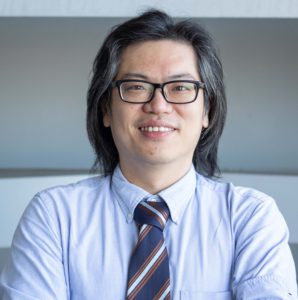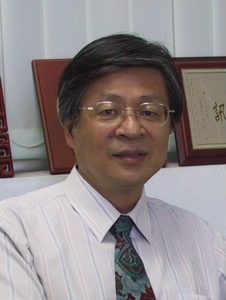IEVC2024 | Program & Keynotes
Program
Timetable
Monday, March 11
| Time (TST) | F. C. Room | ATI Room |
|---|---|---|
| 13:00-13:20 | Opening | |
| 13:20-14:20 | Keynote #1 | |
| 14:20-14:35 | Break | |
| 14:35-16:15 | 1A: Rendering | 1B: modeling & animation |
Tuesday, March 12
| Time (TST) | F. C. Room | ATI Room | Chi-Duan Building | Hall |
|---|---|---|---|---|
| 9:00-10:20 | 2A: Computer Vision & 3D Image Processing(1) | 2B: Virtual, Augmented, and Mixed Reality(1) | 2C: Security and privacy | |
| 10:20-10:35 | Break | |||
| 10:35-11:35 | Poster FF | |||
| 11:35-13:20 | Lunch | |||
| 13:20-14:35 | Poster1 | |||
| 14:35-14:50 | Break | |||
| 14:50-16:10 | 5A: Image Recognition & Detection (2) | 5B: Virtual, Augmented, and Mixed Reality(2) | 5C: Image Recognition & Detection (1) | |
| 16:10-16:25 | Coffee Break | |||
| 16:25-17:45 | 6A: Computer Vision & 3D Image Processing(2) | 6B: Artificial intelligence and deep learning | 6C: Computer Vision & 3D Image Processing(3) | |
Wednesday, March 13
| Time (TST) | F. C. Room | Hall |
|---|---|---|
| 9:00-10:00 | Keynote #2 | |
| 10:00-10:15 | Break | |
| 10:15-11:30 | Poster2 | |
| 11:30-13:15 | Lunch | |
| 13:15-18:00 | Excursion | |
| 18:30-20:00 | Banquet | |
Thursday, March 14
| Time (TST) | F. C. Room | ATI Room | Hall |
|---|---|---|---|
| 9:00-10:20 | 8A: Virtual, Augmented, and Mixed Reality(3) | 8B: Medical Image processing | |
| 10:20-10:35 | Break | ||
| 10:35-11:35 | Keynote #3 | ||
| 11:35-13:20 | Lunch | ||
| 13:20-14:00 | Special Session: Industry Forum | 9: Multimedia | Demo |
| 14:00-14:15 | Break | ||
| 14:15-15:15 | 10: Image Recognition & Detection (3) | ||
| 15:15-15:30 | Coffee Break | ||
| 15:30-17:00 | |||
| 17:00-17:20 | Closing | ||
Keynotes
Keynote #1: Interactive Tangible Computing
Abstract: In this talk, I will first introduce our school, National Taiwan University, as well as my research background and interests of interactive tangible computing. Then, I will focus on introducing our recent projects related to the human-computer interaction (HCI), including a GUI (Graphical User Interface) solution – RealityLens (ACM UIST 2022), NUI (Natural User Interface) solutions – GuideBand (ACM CHI 2021) and FrictShoes (IEEE VR 2022 – TVCG), TUI (Tangible User Interface) solutions – Glissade (ACM CHI 2022) and NFCStack (ACM DIS 2022 and ACM UIST 2022), and a IUI (Intelligent User Interface) solution – OmniScribe (ACM UIST 2022), and AUI (Accessible User Interface) solutions – Daedalus in the Dark (ACM UIST 2021 and ACM CHI 2023) and TacNote (ACM UIST 2023).
Speaker: Prof. Bing-Yu Chen
Distinguished Professor with the Department of Computer Science and Information Engineering, Department of Information Management, and Graduate Institute of Networking and Multimedia of National Taiwan University

Bing-Yu Chen, aka Robin Chen, received the B.S. and M.S. degrees in Computer Science and Information Engineering from National Taiwan University, Taipei, Taiwan, in 1995 and 1997, respectively, and the Ph.D. degree in Information Science from The University of Tokyo, Tokyo, Japan, in 2003. He is currently a Distinguished Professor with the Department of Computer Science and Information Engineering, Department of Information Management, and Graduate Institute of Networking and Multimedia of National Taiwan University (NTU). He has also been the Dean of NTU College of Design and Innovation (D-School) since 2019, and was an Associate Dean and the EiMBA Director of the NTU College of Management (B-School) during 2013-2019, an Associate Director of the NTU IoX Research Center (formerly Intel-NTU Connected Context Computing Center) during 2012-2021, and the Director of NTU Creativity and Entrepreneurship Program (CEP) during 2016-2022. His current research interests include Human-Computer Interaction, Computer Graphics, Image Processing, and Innovation and Entrepreneurship Education. He is a senior member of ACM and IEEE, and has been a steering committee member of Pacific Graphics since 2011 and an ACM SIGGRAPH Asia Conference Advisory Group (SACAG) member-at-large since 2023.
Keynote #2: The Principle and Future Prospects of AIGC Generative Models
Abstract: AIGC is considered to be a new content creation method after professional-generated content (PGC, professional-generated content) and user-generated content (UGC, User-generated content). In 2022, the development speed of AIGC becomes astonishing. According to an analysis by Generative AI: A Creative New World, AIGC has the potential to generate trillions of dollars in economic value. While AIGC attracts global attention, intellectual property rights and technology ethics will face many challenges and risks. In this talk, we will first talk about milestones of Generative Models and then discuss the principal theory and application of various Generative Models. Finally, we will talk about the future prospects of the AIGC.
The outline of this talk is shown below:
- Milestones of generative models
- Generation principles of various generative models
- Unconditional & conditional generation
- Application of conditional generation
- Introduction of text-to-image models
- Future development directions of generative models
- Conclusion
Speaker: Dr. James, Jhing-fa Wang
Chair Professor, National Cheng Kung University, Tainan, Taiwan

Prof. Jhing-Fa Wang is currently the Chair & Distinguished Professor in the Department of Electrical Engineering, National Cheng Kung University (NCKU). He got his bachelor and master degree from NCKU in Taiwan and Ph. D. from Stevens Institute of Technology USA in 1973, 1979 and 1983 respectively. He was the President in Tajen University in 2012-2020, the formal chair of IEEE Tainan Section in 2005-2009, the Coordinator of Section/Chapter, IEEE Region 10 in 2011-2012 & the Industry Liaison-Coordinater of IEEE Region 10 in 2009-2011. He was elected as IEEE Fellow in 1999 for his contribution on: “Hardware and Software Co-design on Speech Signal Processing”, He was also the general Chair of ISCAS 2009.
He received Outstanding Research Awards and Outstanding Researcher Award from National Science Council in 1990, 1995, 1997, and 2006 respectively. He also received Outstanding Industrial Awards from ACER and Institute of Information Industry and the Outstanding Professor Award from Chinese Engineer Association, Taiwan in 1991 and 1996 respectively. He also received the culture service award from Ministry of Education, Taiwan in 2008, Distinguished Scholar Award of KT Li from NCKU in 2009, IEEE Tainan Section Best Service Award in 2011, Innovation Education Award in 2013 Seoul International Invention Fair & special award from 2017 Kuwait International Invention Fair.
Prof. Wang was also invited to give the Keynote Speeches in PACLIC 12 in Singapore, 1998, UWN 2005 in Taipei, WirlessCom 2005 in Hawaii, IIH-MSP 2006 in Pasadena, USA, ISM 2007 in Taichung, PCM 2008 in Tainan, 2011 ICAST in Dalian, China, 2011 ICSPCC in Xi’an, China, Keer 2012 in Penghu, Taiwan, HIS 2017 in Moscow Region, Russia, ICOT 2015 & ICOT 2016 & ICOT 2017 in Hong kong & Australia & Singapore respectively. He also served as an associate editor on IEEE Transactions on Neural Network and IEEE Transactions on VLSI System and Editor in Chief on International Journal of Chinese Engineering from 1995 to 2000.
Prof. Wang’s research area is mainly on multimedia signal processing including speech signal processing, image processing, AI medicine, VLSI system design and AI robots. Concerning about the publication, he has published about one hundred & sixty journal papers on IEEE, SIAM, IEICE, IEE and about three hundreds international conference papers since 1983. Prof. Wang recently has explored the research on Orange Technology. Orange Technology refers to a newly evolved interdisciplinary research area for integration and innovation of health, happiness, and care technologies. The objective of Orange Technology is to bring more health, happiness and warming care to the society.
Keynote #3: Bringing Generative AI to Your Fingertips
Abstract: Edge AI has evolved dramatically, advancing from basic image recognition to enhancing the quality of videos and games and then to content generation with the advent of Generative AI. Diffusion models, are now capable of generating not just images but also videos and intricate 3D scenes from simple text prompts. Traditionally models require substantial computing resources and are predominantly cloud-based.
In this presentation, we will explore the transition of Generative AI to edge devices. Our goal is to enable a new suite of applications that harness the power of Generative AI directly on your devices, allowing for the instant creation of stunning images, videos, and 3D content on-demand. We will discuss emerging applications of text to image and video models, like OpenAI’s Sora, that can produce minute-long videos with high visual fidelity, or Stable Video Diffusion for dynamic content generation. Additionally, we will touch on Neural Radiance Fields (NeRF) and its alternatives for 3D content and scene creation, and the multimodality capabilities of these models. The challenges are significant, necessitating innovative IC design and optimization of AI algorithms to run efficiently with minimal energy consumption.
Speaker: Mr. TY Lin
Deputy General Manager, Computing and Artificial Intelligence Technology Group, MediaTek Inc.

TY received both his Bachelor’s and Master’s degrees from National Taiwan University. After completing his military service in the Navy, he joined MediaTek in 1999 as a digital signal processing (DSP) engineer. He was a founding member of the DVD Player SOC team, which achieved a worldwide #1 share in 2002 with the most design awards of all global tier-one brands such as SONY, Panasonic, LG, etc,. Since 2004, TY has been rotated to the management positions of different teams such as DTV SoC, Android TV, PQ engine, and computing platform architecture engineering. He currently leads MediaTek’s central AI teams to design AI processors, AI softwares, and AI algorithms for smartphone, smart TV, smart cameras, automotive, and AIoT product lines. The latest MediaTek SOC just won the WW 1st postion of ETHZ AI benchmark.
Excursion (Bus tour) Wednesday, March 13
Start: In front of the conference building
Goal: Banquet restaurant (Nong Yuan Man Han Restaurant)
Course: Visiting Chihkan Tower (赤崁楼), exploring the Tree House (安平樹屋), and wandering around Anping Old Fort (安平古堡) & Street (安平老街).
* We are preparing the tour pamphlet for all participant
* The tour includes a guide in Japanese.
Banquet Wednesday, March 13, 18:30-20:00
Nong Yuan Man Han Restaurant: 濃園滿漢餐廳 google map
Address : No.248, Section 2, Changrong Rd, East District, Tainan City
Tel : +886 6-235-1133 or 6-237-6999

